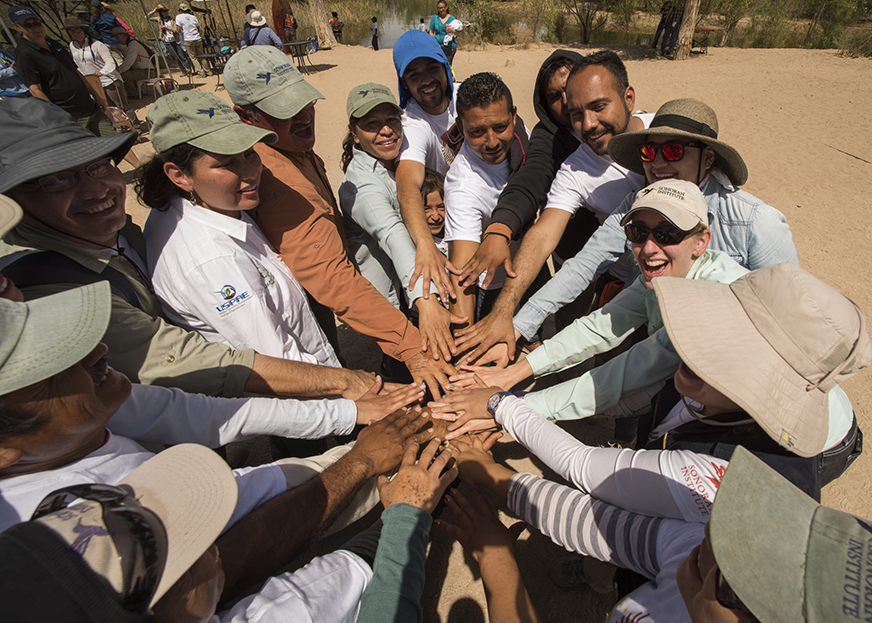Being a binational organization
One thing that often surprises people when I describe Sonoran Institute is when I say that our office in Mexico is larger than our offices in the US combined—by quite a bit.
Although we work throughout the Colorado River basin, our restoration work in the Delta requires the most hands. Sixty percent of Sonoran Institute works in Mexico and are Mexican citizens (or, in a few cases on both sides, are dual citizens). Roles in Mexicali mirror and complement the positions staffed in the US—hydrologists, GIS specialists, community outreach and environmental education specialists, accountants and administrators, ecological monitoring coordinators, and horticultural workers. We’re a skilled, well-educated, dedicated crew and busy working toward shared goals.

On a chilly morning in December I was driving from Tucson with my colleague, Amanda, to do some community outreach at Tumacácori National Historic Park where the Santa Cruz River is protected and flowing near the Spanish mission. She described how it was a really unique thing for her to work for an organization based in two countries, and didn’t think we highlight it enough.
Like Amanda, I feel lucky and I understand when she says there’s something that feels natural about Sonoran Institute being made up of both countries. She said, “I’m a living example of how little most people understand about the border region until they are immersed and experiencing it first-hand…To work for a binational organization feels like the natural choice for this area, and personally I feel lucky to have this opportunity to continue to learn from and support the success of our cultural influencers from the South.”
Why does it feel natural? We consistently describe the rivers that we work on as crossing the border (sometimes twice!) and being binational. We describe the Santa Cruz and the Colorado as shared resources needing collaborative solutions from leaders in the US and Mexico, and we can describe you, our supporters and friends the same way. We’re united across borders and don’t tend to view our differences as threats—we know they’re strengths. Our core values: collaboration, civil dialogue, and trusting communities to find common ground doesn’t stop at the international border. Our rivers don’t stop, our landscapes don’t stop, and neither does our friendship.
At a recent staff meeting I pitched the idea of writing this article on being a binational organization to everyone, and asked for help to make sure I capture a decent snapshot of what it means to us collectively.
What I learned from my colleagues was a lot more than I’d expected. I’m breaking each theme into its own post so I can share the wisdom in everyone’s words. The common threads I want to share are:
- Challenges that lead to growth
- Challenges that are persistent
- Our common connection to nature
- Pride, gratitude and generosity
These unique aspects of being a binational organization are a source of pride: dedication to collaboration and building consensus. While nothing is always easy, we do tend to remember that we thrive together.
Blog Post By: Corinne Matesich, Marketing Communications Manager
